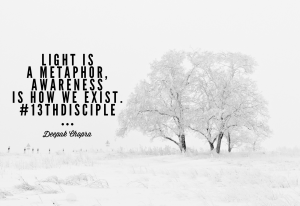Original Published on LinkedIn
By Deepak Chopra and Martin Whittaker[1]
Do you spend time socializing with people whose core values you question? Do you turn a blind eye when people you know act in ways you find fundamentally abhorrent? Probably not. Now, what if you knew a company was operating in a way that went against something you felt strongly about. Would you adjust your purchasing activity? Or would you prefer to buy from, or work for, or invest in those businesses operating in ways that align with your values? For us, the answer is yes – and that’s exactly how it should be. Companies should be rewarded for helping, not harming, our collective society.
Most of us think of corporations as our employers, or as the providers and manufacturers of countless products and services that we use to make our lives more convenient and comfortable. Often, we enjoy a transactional relationship with the brands we are loyal to, but in the rush of everyday routine we don’t stop to think about how these brands impact our society on a fundamental level.
Let’s say you are a self-identified environmentalist – someone who makes a conscious effort in your personal life to do things large and small that make a difference. Or maybe you care more about social issues, and are active in supporting underprivileged communities in your neighborhood. How do you know if you are making the right decisions as a consumer to buy products or services from corporations who share your concern for the environment? Likewise, how do you know if companies in your 401(k) retirement plan are paying a living wage to minority workers, or providing good benefits, or behaving in a manner consistent with your social values?
The truth is that outside of conducting extensive and time-consuming research, people do not know if corporations are acting in a way that aligns with their values – whatever they may be.
Recently, our friend, a devout capitalist and hedge fund scion Paul Tudor Jones announced the formation of JUST Capital[1], a new not-for-profit organization of which we are co-founder and Board member, and founding CEO, respectively. JUST Capital is dedicated to giving the American people a voice; to defining, measuring and ranking corporate behavior based on the preferences, attitudes and values of the public.
[youtube]https://youtu.be/GuyrJyyU3kQ[/youtube]
Paul Tudor Jones II: Why we need to rethink capitalism[3]
Courtesy of YouTube/JUSTCAPITAL
The ultimate goal is to drive more balanced and equitable company behavior using the power of the market. By creating a standard, transparent metric of just corporate practice – we’re calling it the JUST Index – we can empower consumers, employees, local citizens, investors, corporate leaders and other stakeholders to make decisions that better reflect their values, and in doing so drive prosperity and justness for us all.
[1] Deepak Chopra is co-founder and Board member of JUST Capital; Martin Whittaker is JUST Capital’s CEO.
[2] www.justcapital.com
[3] Originally Posted at TED.com. Interactive transcript can be found here.




